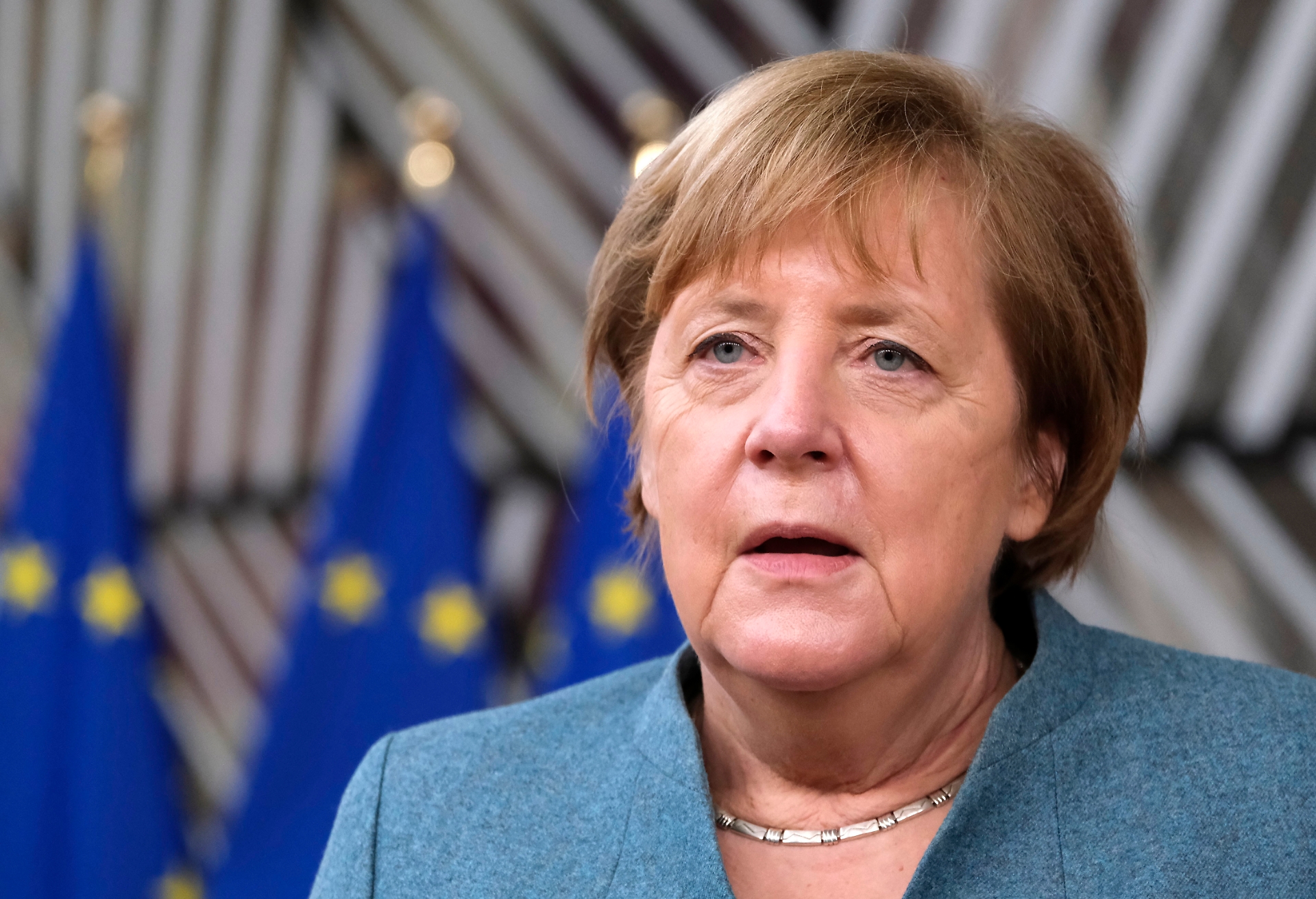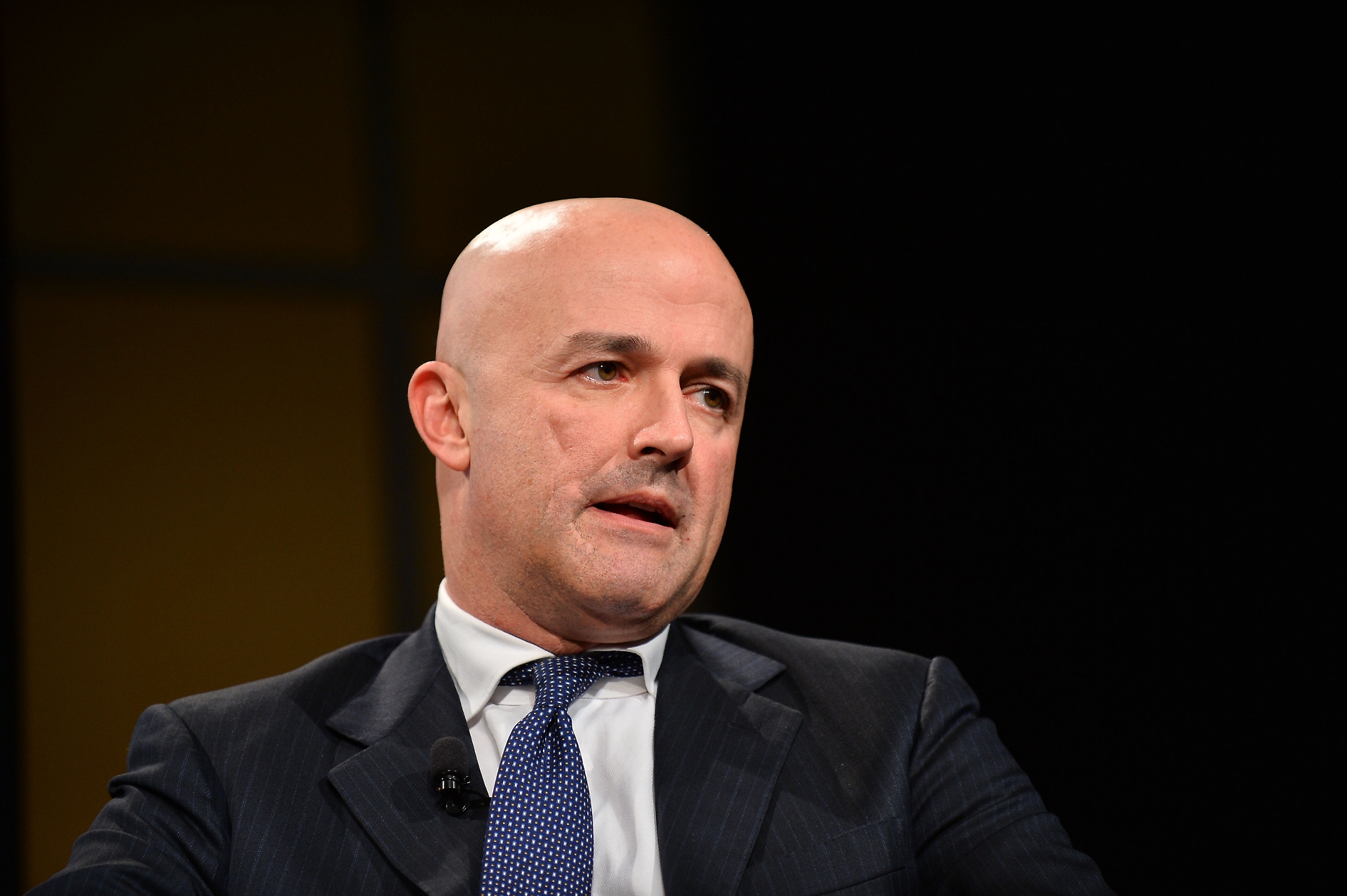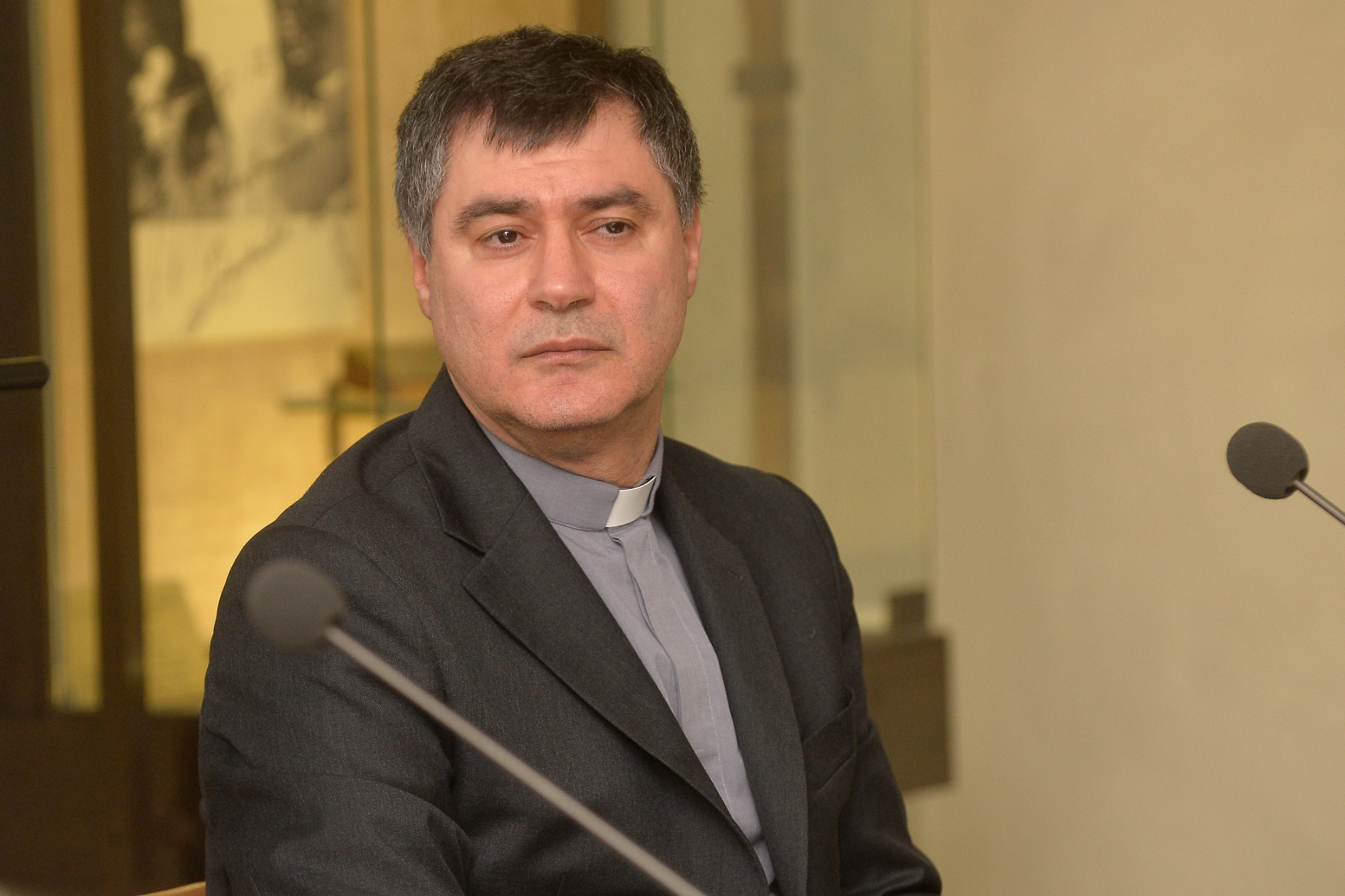AGGIORNAMENTI
Cerca
Città del Vaticano
31 Dicembre 2022 - 14:51

Dalla lezione di Ratisbona al caso Vatileaks, dalla 'riabilitazione' di un vescovo negazionista all'intervento 'negato' all'Università La Sapienza, i quasi otto anni di pontificato di Benedetto XVI, fino alla sua storica rinuncia, hanno coinciso con un periodo di forti turbolenze per la Chiesa, di crisi nei rapporti esterni, dovute in parte ad alcuni incidenti di percorso che hanno segnato la permanenza del Papa tedesco sul soglio di Pietro.
La stessa strenua lotta contro la piaga della pedofilia, la "tolleranza zero" ordinata con merito proprio da papa Ratzinger, da un punto di vista mediatico fu paradossalmente quasi un'arma a doppio taglio, con lo scandalo degli abusi propagatosi a tali livelli quasi da travolgere l'immagine della Chiesa nel mondo.


"Mostrami pure ciò che Maometto ha portato di nuovo, e vi troverai soltanto delle cose cattive e disumane, come la sua direttiva di diffondere per mezzo della spada la fede che egli predicava"
IL DISCORSO DI RATISBONA - Come una pericolosa 'gaffe' (anche se da molti rivalutata negli anni successivi) fu vista la lectio magistralis tenuta da Benedetto XVI il 12 settembre 2006 all'Università di Ratisbona durante il suo viaggio in Baviera. La citazione di una frase dell'imperatore bizantino Manuele II Paleologo a proposito della guerra santa - "Mostrami pure ciò che Maometto ha portato di nuovo, e vi troverai soltanto delle cose cattive e disumane, come la sua direttiva di diffondere per mezzo della spada la fede che egli predicava" - provocò nel mondo islamico violente reazioni perché ritenuta offensiva, con massicce proteste di piazza. Successivamente il Papa, durante un Angelus trasmesso anche da Al Jazeera, disse di essere "vivamente rammaricato per le reazioni", specificando di non condividere il pensiero espresso nel testo citato a Ratisbona e invitando l'Islam al dialogo. La crisi però durò a lungo. Altre frasi di Ratzinger sulla necessità di una protezione internazionale dei copti in Egitto determinarono la rottura del dialogo con l'Università di Al-Azhar del Cairo, massimo istituto dell'Islam sunnita, dialogo riallacciato poi solo sotto il pontificato del successore, papa Francesco.

LA LEZIONE 'NEGATA' ALLA SAPIENZA - Il 15 gennaio 2008, su richiesta del rettore dell'Università di Roma "La Sapienza", il Papa fu invitato ad intervenire all'inaugurazione dell'anno accademico. Tale scelta fu criticata da 67 docenti dell'ateneo, il che portò la Santa Sede a declinare l'invito e suscitò forti polemiche nel mondo politico, giornalistico e universitario.
LA 'RIABILITAZIONE' DEL VESCOVO NEGAZIONISTA - Un 'incidente' col mondo ebraico fu causato da un passo compiuto da Benedetto XVI nel cammino di riavvicinamento con gli ultra-tradizionalisti scismatici seguaci del vescovo Marcel Lefebvre. Il 21 gennaio 2009 il Papa concesse la remissione della scomunica ai quattro vescovi lefebvriani e nello stesso giorno la tv svedese Svt rese pubblica un'intervista in cui uno dei quattro, il britannico mons. Richard Williamson, professava una posizione negazionista della Shoah.
Il Gran Rabbinato di Israele rimandò subito alcuni incontri col Vaticano. Sollecitato da più parti, il Pontefice nell'udienza generale del 28 gennaio pronunciò parole chiare per contestare ogni forma di negazionismo, esprimere solidarietà agli ebrei e ribadire la volontà di continuare nel dialogo.

Angela Merkel
Critiche sulla vicenda giunsero al Papa anche da Angela Merkel. Il 4 febbraio, una nota della Segreteria di Stato vaticana definì "assolutamente inaccettabili e fermamente rifiutate dal Santo Padre" le posizioni di mons. Williamson, "non conosciute" dal Pontefice "nel momento della remissione della scomunica".
IL CASO VATILEAKS, IL MAGGIORDOMO 'INFEDELE' - Un'eco mondiale senza precedenti ebbe nel 2012 lo scandalo della fuga di documenti riservati del Pontefice, molti dei quali rivelavano trame e casi di corruzione in Vaticano, trafugati direttamente dalla segreteria del Papa dal maggiordomo 'infedele' Paolo Gabriele, il laico più vicino al Pontefice, e finiti nel libro "Sua Santità" di Gianluigi Nuzzi. Il 24 maggio, pochi giorni dopo l'uscita del libro, 'Paoletto' - così veniva chiamato nella famiglia pontificia - fu arrestato dalla Gendarmeria e rinchiuso in cella in Vaticano.
"Gli eventi degli ultimi giorni riguardo alla Curia e ai miei collaboratori hanno portato tristezza nel mio cuore", disse Ratzinger nell'udienza generale del 30 maggio. Dopo un processo durato quattro udienze, Gabriele fu condannato a un anno e sei mesi di reclusione. Condannato a due mesi (sospesi) in un separato processo anche il tecnico informatico della Segreteria di Stato Claudio Sciarpelletti. Il 22 dicembre Benedetto andò a trovare in cella l'ex aiutante di camera e gli diede la grazia. Mancavano meno di due mesi a quell'11 febbraio 2013 in cui, davanti ai cardinali attoniti, rinunciò al Papato.

Gianluigi Nuzzi
LA LETTERA 'SBIANCHETTATA' DA VIGANO' - Tra gli incidenti di percorso, ma successivi alle dimissioni, può annoverarsi la lettera riservata che il Papa emerito inviò nel gennaio 2018 all'allora prefetto della Segreteria per la comunicazione, mons. Mario Edoardo Viganò, con cui rifiutava di scrivere una "breve e densa pagina teologica" come introduzione alla collana in 11 volumetti "La teologia di papa Francesco" in uscita per la Lev, curata dal futuro arcivescovo di Torino Roberto Repole.

Roberto Repole
Nella lettera, tra l'altro, Ratzinger esprimeva giudizi su un teologo tedesco a lui avverso e inserito tra gli autori della collana, dicendosi anche sorpreso per questo. All'uscita della pubblicazione, nel marzo successivo, Viganò rese però pubblica solo una parte della missiva - il resto era sfocato nella foto o nascosto -, quella dove Ratzinger descriveva papa Bergoglio come "uomo di profonda formazione filosofica e teologica" e sottolineava "la continuità interiore tra i due pontificati".
Che il testo non fosse completo venne tuttavia alla luce in brevissimo tempo e, tra aspre polemiche, la lettera fu pubblicata integralmente, ma Viganò dovette dimettersi.
English version
From the Regensburg lecture to the Vatileaks case, from the 'rehabilitation' of a negationist bishop to the 'denied' intervention at La Sapienza University, the almost eight years of Benedict XVI's pontificate, up to his historic resignation, coincided with a period of strong turbulence for the Church, crisis in external relations, due in part to some mishaps that marked the permanence of the German Pope on the throne of Peter.
The same strenuous fight against the scourge of pedophilia, the "zero tolerance" ordered with merit by pope Ratzinger, from a media point of view was paradoxically almost a double-edged sword, with the abuse scandal spreading to such levels almost overwhelm the image of the Church in the world.
THE SPEECH IN REGENSBON - The lectio magistralis given by Benedict XVI on September 12, 2006 at the University of Regensburg during his trip to Bavaria was seen as a dangerous 'gaffe' (although re-evaluated by many in subsequent years). The quotation of a phrase of the Byzantine emperor Manuel II Palaeologus about the holy war - "Show me what Mohammed has brought new, and you will find there only bad and inhumane things, such as his directive to spread by the sword the faith that he preached" - provoked violent reactions in the Islamic world because it was considered offensive, with massive street protests. Subsequently the Pope, during an Angelus also broadcast by Al Jazeera, said he was "strongly sorry for the reactions", specifying that he did not share the thought expressed in the text quoted in Regensburg and inviting Islam to dialogue. But the crisis lasted a long time. Other sentences by Ratzinger on the need for international protection of the Copts in Egypt led to the breakdown of the dialogue with the University of Al-Azhar in Cairo, the highest institute of Sunni Islam, a dialogue which was then re-established only under the pontificate of his successor, Pope Francis.
THE LESSON 'DENIED' TO SAPIENZA - On 15 January 2008, at the request of the rector of the University of Rome "La Sapienza", the Pope was invited to speak at the inauguration of the academic year. This choice was criticized by 67 professors of the university, which led the Holy See to decline the invitation and aroused strong controversy in the political, journalistic and university world.
THE 'REHABILITATION' OF THE DENIAL BISHOP - An 'accident' with the Jewish world was caused by a step taken by Benedict XVI on the path of rapprochement with the schismatic ultra-traditionalists followers of Bishop Marcel Lefebvre. On 21 January 2009 the Pope granted the remission of the excommunication to the four Lefebvrian bishops and on the same day the Swedish TV Svt made public an interview in which one of the four, the British Msgr. Richard Williamson, professed a Holocaust denier position.
The Chief Rabbinate of Israel immediately postponed some meetings with the Vatican. Urged by many quarters, the Pontiff in the general audience of January 28 spoke clear words to contest all forms of denial, express solidarity with the Jews and reaffirm the will to continue the dialogue.
Criticisms of the affair also reached the Pope from Angela Merkel. On 4 February, a note from the Vatican Secretariat of State defined the positions of Msgr. Williamson, "not known" by the Pope "at the moment of the remission of the excommunication".
THE VATILEAKS CASE, THE BUTLER 'IN FAITHFUL' - In 2012, the scandal of the leak of confidential documents of the Pope caused an unprecedented global outcry, many of which revealed plots and cases of corruption in the Vatican, stolen directly from the Pope's secretariat by the butler ' unfaithful Paolo Gabriele, the layman closest to the Pope, and ended up in the book "His Holiness" by Gianluigi Nuzzi. On 24 May, a few days after the publication of the book, 'Paoletto' - as he was called in the papal family - was arrested by the Gendarmerie and locked up in a cell in the Vatican.
"The events of the last few days concerning the Curia and my collaborators have brought sadness to my heart," Ratzinger said in the May 30 general audience. After a trial that lasted four hearings, Gabriele was sentenced to one year and six months in prison. The computer technician of the Secretariat of State Claudio Sciarpelletti was also sentenced to two months (suspended) in a separate trial. On December 22, Benedetto went to see the former room aide in his cell and pardoned him. There were less than two months left until February 11, 2013 when, in front of the astonished cardinals, he renounced the papacy.
VIGANO'S 'BLEACHED' LETTER - Among the incidents along the way, but following his resignation, we can mention the confidential letter that the Pope Emeritus sent in January 2018 to the then prefect of the Secretariat for Communication, Msgr. Mario Edoardo Viganò, with whom he refused to write a "short and dense page.
In the letter, among other things, Ratzinger expressed opinions on a German theologian against him and included among the authors of the series, also saying he was surprised by this. However, when the publication came out the following March, Viganò made public only a part of the missive - the rest was blurred in the photo or hidden -, the one in which Ratzinger described Pope Bergoglio as a "man of profound philosophical and theological formation" and underlined "the interior continuity between the two pontificates".
Edicola digitale
I più letti

LA VOCE DEL CANAVESE
Reg. Tribunale di Torino n. 57 del 22/05/2007. Direttore responsabile: Liborio La Mattina. Proprietà LA VOCE SOCIETA’ COOPERATIVA. P.IVA 09594480015. Redazione: via Torino, 47 – 10034 – Chivasso (To). Tel. 0115367550 Cell. 3474431187
La società percepisce i contributi di cui al decreto legislativo 15 maggio 2017, n. 70 e della Legge Regione Piemonte n. 18 del 25/06/2008. Indicazione resa ai sensi della lettera f) del comma 2 dell’articolo 5 del medesimo decreto legislativo
Testi e foto qui pubblicati sono proprietà de LA VOCE DEL CANAVESE tutti i diritti sono riservati. L’utilizzo dei testi e delle foto on line è, senza autorizzazione scritta, vietato (legge 633/1941).
LA VOCE DEL CANAVESE ha aderito tramite la File (Federazione Italiana Liberi Editori) allo IAP – Istituto dell’Autodisciplina Pubblicitaria, accettando il Codice di Autodisciplina della Comunicazione Commerciale.